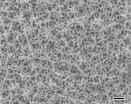(Press-News.org) WASHINGTON (April 15, 2015) -- The George Washington University (GW) Cancer Institute has finalized 45 core competency statements for oncology patient navigators, who have become critical members of the health care team. These competency statements were published in the Journal of Oncology Navigation and Survivorship and were created through literature review, focus group data analysis, expert review, and a national survey of oncology patient navigation stakeholders.
"Patient navigation is a rapidly growing health profession given new accreditation standards from the American College of Surgeons' Commission on Cancer. However, patient navigation suffers from a lack of standardization or regulation of any kind," said Mandi Pratt-Chapman, M.A., lead author and director of the GW Cancer Institute, which is housed within the GW School of Medicine and Health Sciences. "This means that patient navigator practices vary widely, sometimes performing administrative duties that underutilize unique skills and sometimes performing services that should be left to clinically-licensed health care professionals. The GW Cancer Institute Core Competencies for Oncology Patient Navigators are the first-ever consensus-based standards for the field to advance the profession and ensure we optimize all members of the health care team to support great patient care."
Of the respondents eligible to take the national survey, 98-81 percent endorsed the final competency statements. These competencies can be incorporated into training programs, such as a new, online oncology patient navigator course developed by the GW Cancer Institute and funded by the U.S. Centers for Disease Control and Prevention, to ensure consistent standards across the profession. The course will launch May 1, 2015.
In addition to creating 45 core competency statements, Pratt-Chapman and her team also wrote a framework defining the primary role and functions performed by oncology patient navigators, community health workers, and clinically licensed nurse and social worker navigators. The competencies were developed using this foundational framework by co-author Anne Willis, M.A., director of the patient-centered programs at the GW Cancer Institute.
INFORMATION:
In addition to Pratt-Chapman and Willis, Leah Masselink, Ph.D., assistant professor of health policy and management at the Milken Institute School of Public Health at GW, was a co-author for the study.
The paper, "Core Competencies for Oncology Patient Navigators," was published in the journal's April 2015 edition.
For a copy of the paper, or to interview Ms. Pratt-Chapman, please contact Lisa Anderson at lisama2@gwu.edu or 202-994-3121.
About the GW Cancer Institute
The GW Cancer Institute (GWCI), housed within the GW School of Medicine and Health Sciences, takes a comprehensive approach to a complex disease. Working together with the GW Hospital and GW Medical Faculty Associates, the GW Cancer Institute brings multidisciplinary clinical, research, education and outreach programs together in a comprehensive approach to cancer prevention, diagnosis, treatment and survivorship. The mission of the GW Cancer Institute is to foster healthy communities, prepared patients, responsive health care professionals and supportive health care systems through applied cancer research, education, advocacy and translation of evidence to practice. http://www.gwcancerinstitute.org
About the GW School of Medicine and Health Sciences
Founded in 1824, the GW School of Medicine and Health Sciences (SMHS) was the first medical school in the nation's capital and is the 11th oldest in the country. Working together in our nation's capital, with integrity and resolve, the GW SMHS is committed to improving the health and well-being of our local, national and global communities. smhs.gwu.edu
Mathematical ideas and tools are often used to describe aspects of large macroscopic systems. Examples abound in areas as varied as finance to psychology. In a paper published last month in the SIAM Journal on Applied Mathematics, author Fabio Bagarello proposes mathematical models to analyze political decision-making. Using a dynamical approach which accounts for interactions between political parties and their constituents, the model tries to deduce whether parties should form coalitions under various circumstances.
"Mathematics is important in many aspects of social ...
Depression and type 2 diabetes mellitus were each associated with an increased risk for dementia and that risk was even greater among individuals diagnosed with both depression and diabetes compared with people who had neither condition, according to an article published online by JAMA Psychiatry.
Diabetes and major depression are common in Western populations and as many as 20 percent of people with type 2 diabetes mellitus also have depression.
Dimitry Davydow, M.D., M.P.H., of the University of Washington School of Medicine, Seattle, and coauthors examined the risk ...
Amsterdam, April 15, 2015 - In a recent study published in Optics Communications, scientists from Bar-Ilan University in Israel have presented a new technique that significantly reduces the halo effect that is generated when using multifocal (contact and intra-ocular) lenses and looking at bright point sources in dark conditions.
Presbyopia is a result of natural aging and stems from a gradual thickening and decrease in elasticity of the lens inside the eye. Corrective lenses used to address presbyopia often lead to a halo effect. This is basically a glow or color light ...
HOUSTON - (April 15, 2015) - A cobalt-based thin film serves double duty as a new catalyst that produces both hydrogen and oxygen from water to feed fuel cells, according to scientists at Rice University.
The inexpensive, highly porous material invented by the Rice lab of chemist James Tour may have advantages as a catalyst for the production of hydrogen via water electrolysis. A single film far thinner than a hair can be used as both the anode and cathode in an electrolysis device.
The researchers led by Rice postdoctoral researcher Yang Yang reported their discovery ...
The slow implementation of the Chemical Facility Anti-Terrorism Standards (CFATS) in the USA as part of homeland security and anti-terrorism measures is leaving chemical plants vulnerable and putting at risk the safety of American citizens, according to research published in the International Journal of Critical Infrastructures.
Maria Rooijakkers and Abdul-Akeem Sadiq of the School of Public and Environmental Affairs, at Indiana University-Purdue University, in Indianapolis, explain that post-9/11 efforts to safeguard the chemical sector gave the Department of Homeland ...
WASHINGTON -- U.S. communities and federal agencies should more intentionally seek to create healthier communities during disaster preparation and recovery efforts - something that rarely happens now, says a new report from the Institute of Medicine. By adding a health "lens" to planning and recovery, a community can both mitigate the health damage caused by disasters and recover in ways that make the community healthier and more resilient than it was before.
"We have an opportunity to transform our response to devastating disasters into an effort to meaningfully enhance ...
MIT chemists have devised an inexpensive, portable sensor that can detect gases emitted by rotting meat, allowing consumers to determine whether the meat in their grocery store or refrigerator is safe to eat.
The sensor, which consists of chemically modified carbon nanotubes, could be deployed in "smart packaging" that would offer much more accurate safety information than the expiration date on the package, says Timothy Swager, the John D. MacArthur Professor of Chemistry at MIT.
It could also cut down on food waste, he adds. "People are constantly throwing things ...
Young offenders in late Victorian times were much less likely to go on to commit other crimes after serving a sentence in an institution than their counterparts today, new research shows.
A study of the lives of 500 children committed to reformatory or industrial schools over a century ago showed that only 22% re-offended during the rest of their lives after their release. This compares with today's figure of 73% of young people re-offending within a year after release from custody.
Professor Pamela Cox told the British Sociological Association's annual conference ...
LAWRENCE -- Most partisans -- average Democratic and Republican voters -- act like fans in sports rivalries instead of making political choices based on issues, according to a new study with a University of Kansas researcher as the lead author.
"What is the consequence of today's polarized politics? What's motivating partisans to vote in this climate?" said Patrick Miller, a University of Kansas assistant professor of political science. "For too many of them, it's not high-minded, good-government, issue-based goals. It's, 'I hate the other party. I'm going to go out, ...
FAYETTEVILLE, AR - Determining and implementing orchard management practices that can improve soil organic matter is one of the primary goals of the USDA's National Organic Program. For producers in the southeastern United States, where interest in small-scale and organically managed orchards is growing, the challenge can be finding combinations of groundcover management systems and organic nutrient sources that can simultaneously improve soil quality. A new research study provides producers in the region with valuable information about effective organic orchard management ...

